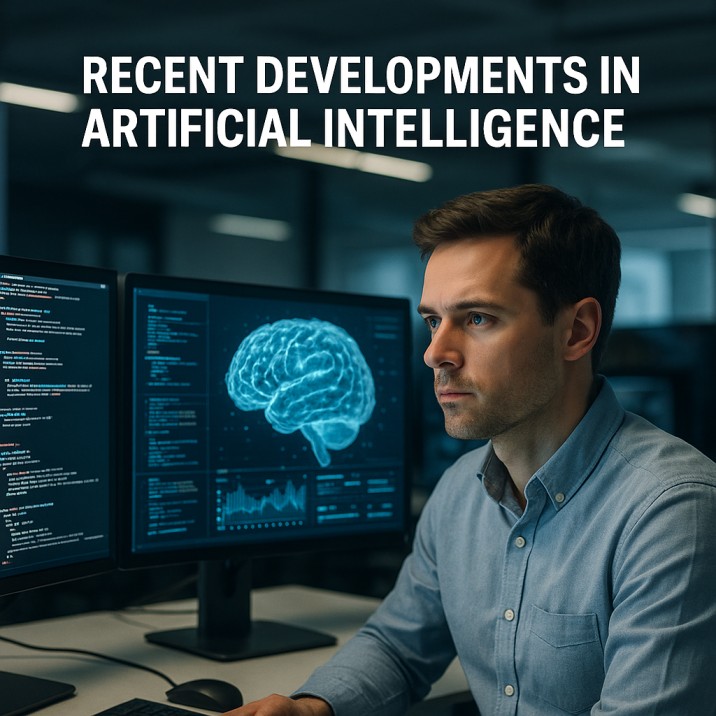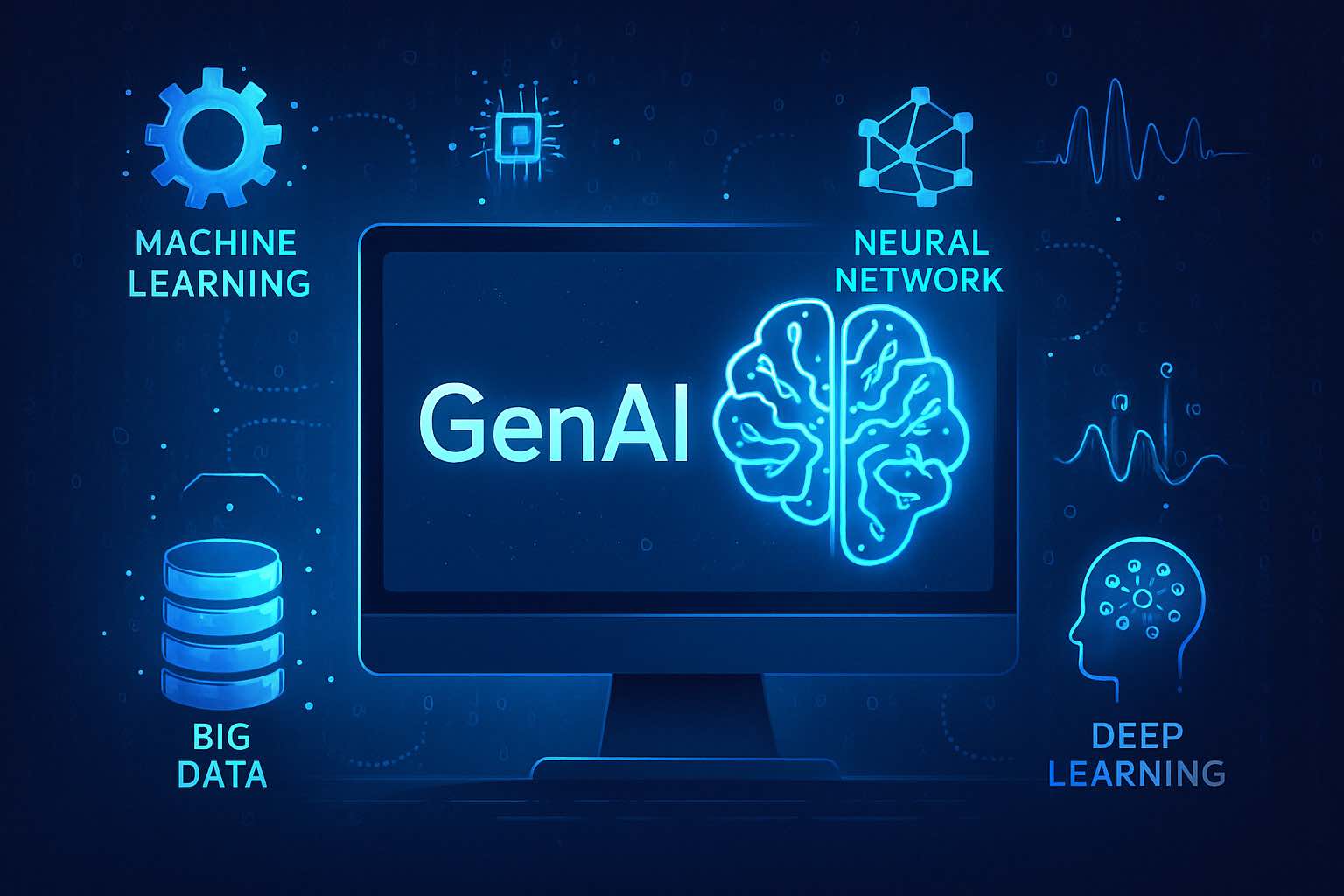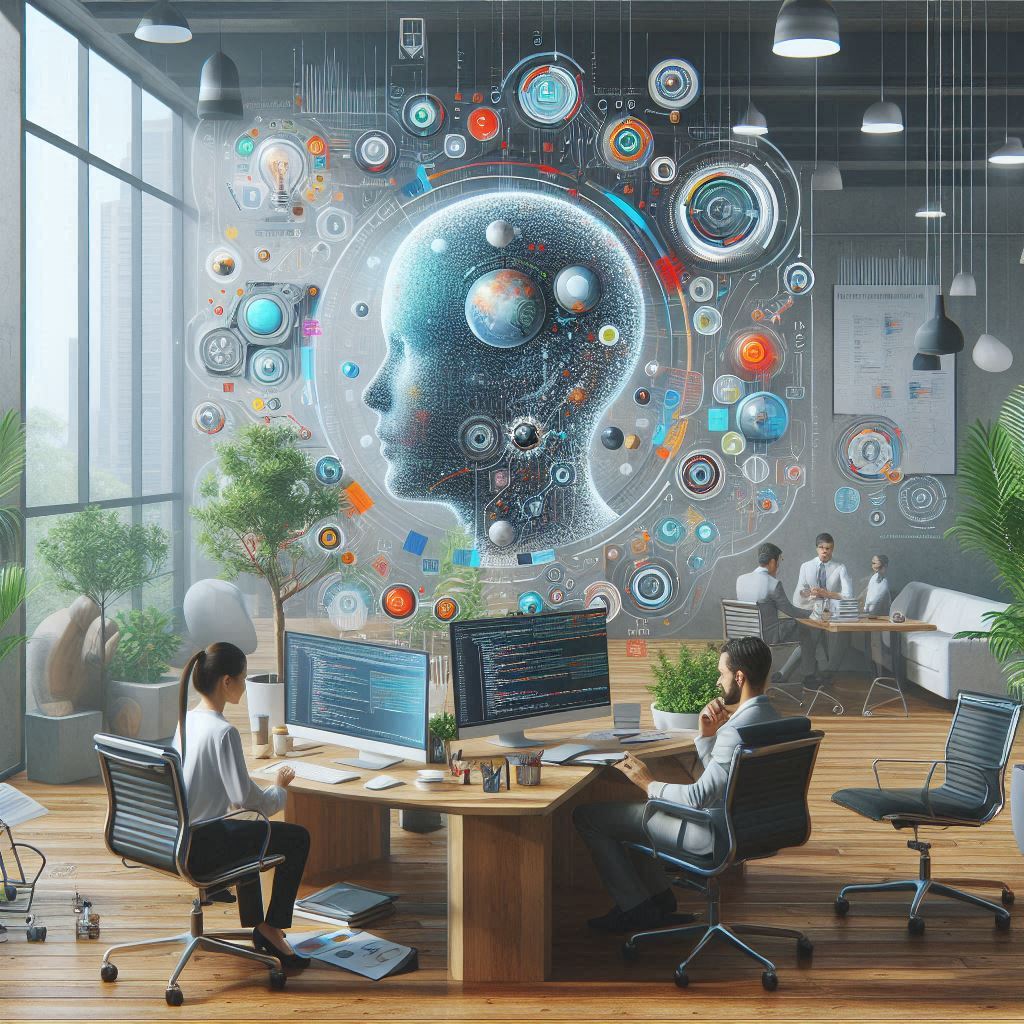Over the past five years, the field of Artificial Intelligence (AI) has experienced unprecedented growth and innovation. Driven by the rapid evolution of tools and technologies, AI is increasingly influencing how we live, work, and interact. These advancements bring both significant benefits and complex challenges, raising important questions about the future of human evolution in an AI-driven world.
Key Advancements in AI (2019–2025)
1. Generative AI
One of the most transformative advancements in recent years is generative AI. These tools have reshaped how individuals approach everyday tasks and how businesses operate. Leading the way is ChatGPT, developed by OpenAI, which has revolutionized communication, productivity, and customer service. Other notable generative AI tools include DeepSeek, DALL·E, Perplexity, InVideo, and more, each playing a unique role in content creation, visual design, and information generation.
2. Multimodal AI
Multimodal AI systems are designed to process and understand multiple types of data—such as text, images, audio, and video—simultaneously. By mimicking human-like perception, these systems can perform tasks beyond the capabilities of single-modality models. Multimodal AI is proving especially valuable in fields like education, accessibility, and interactive learning, offering more intuitive and inclusive user experiences.
3. Autonomous AI
Autonomous AI, often referred to as self-sufficient or self-operating AI, has made significant progress, particularly in the realm of transportation. A prominent example is Tesla’s self-driving cars, which are capable of navigating and operating with minimal human input. These systems demonstrate how AI can augment human capabilities and potentially reshape mobility and logistics.
4. Healthcare Transformation
AI is revolutionizing the healthcare industry by improving diagnosis, treatment, and patient care. Advanced algorithms can now detect diseases such as cancer with high precision, assisting healthcare professionals in early diagnosis and intervention. Additionally, AI-powered tools allow individuals to access reliable medical insights, enabling greater health awareness and proactive care.
5. Business Optimization
In the business sector, AI is driving efficiency and innovation across multiple domains, including production, inventory management, and decision-making. Intelligent systems can analyze vast amounts of data in real-time, enabling organizations to forecast demand, reduce waste, and improve operational strategies. AI-driven automation is reshaping the future of work and organizational agility.
6. Climate and Sustainability Solutions
AI is also being leveraged to address environmental challenges and support sustainable development. A notable example is Google DeepMind, which reduced energy usage in data centers by up to 40%. AI models are helping optimize energy grids, monitor environmental conditions, and promote eco-friendly practices—making them vital tools in the fight against climate change.
Conclusion
The rapid advancement of Artificial Intelligence holds immense promise across diverse sectors—from healthcare and business to education and environmental sustainability. However, with great power comes great responsibility. As we continue to harness the potential of AI, it is critical to prioritize ethical considerations, transparency, and accountability. Striking a balance between innovation and regulation will ensure AI technologies serve the broader interests of humanity.
The future of AI is not just about machines—it’s about collaboration, inclusivity, and shaping a world where technology uplifts all.

About the Author
Nabin Sapkota
Nabin Sapkota is a Full Stack Developer at Creative AI Networks with expertise in modern programming languages, web development, and cloud integration. He contributes to building scalable digital solutions and is passionate about emerging technologies like AI and automation.


